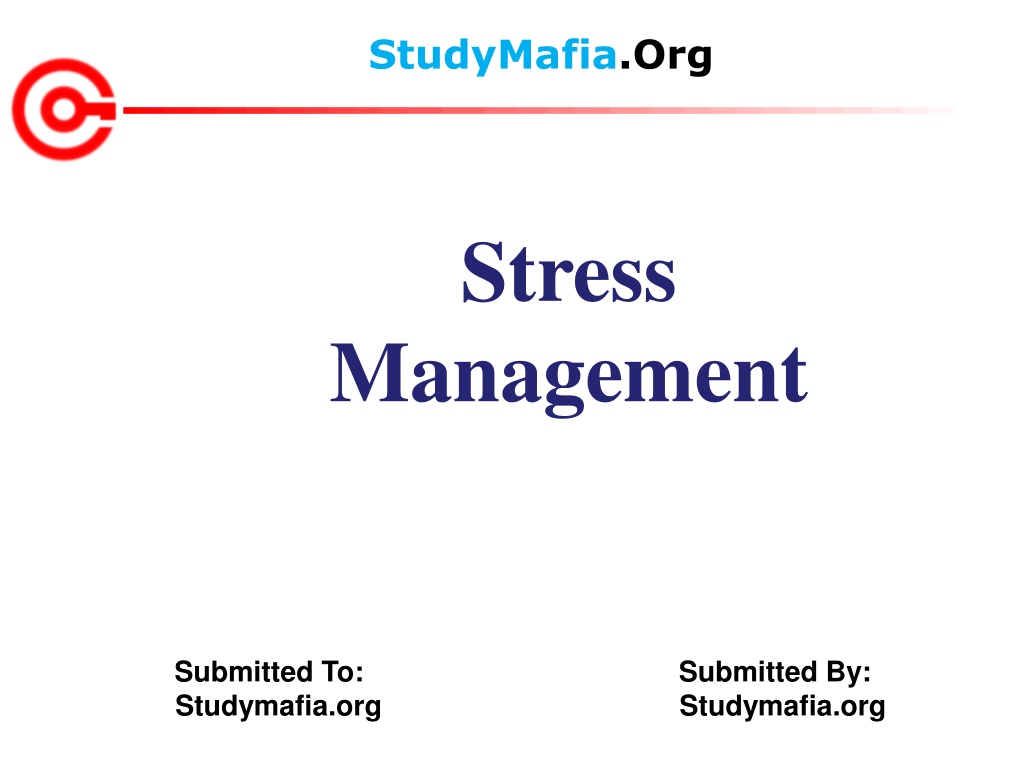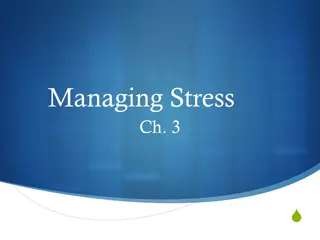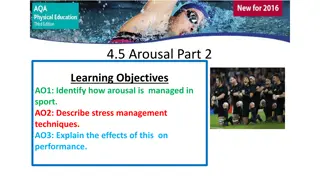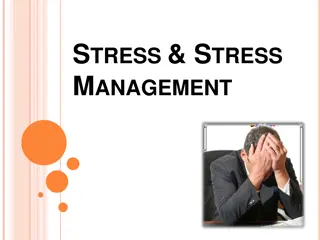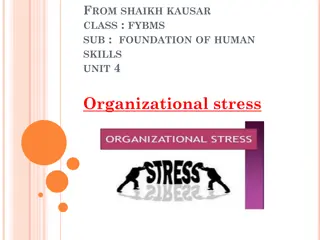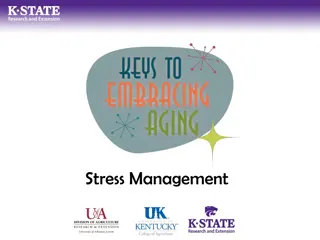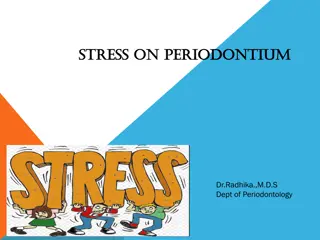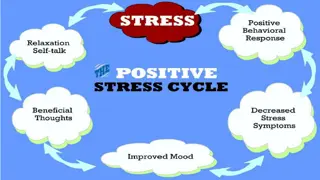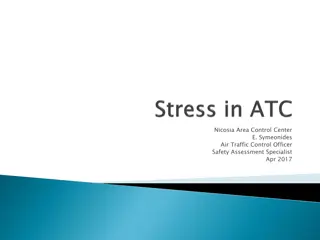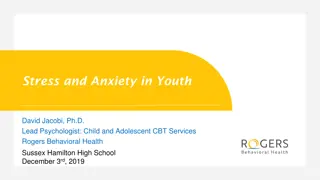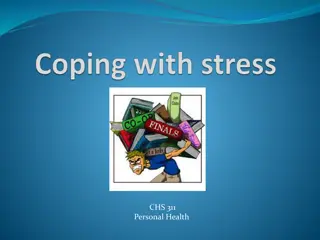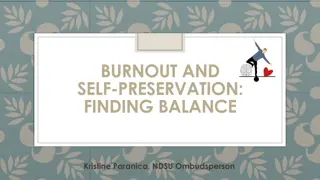Stress Management Techniques for Better Health
Stress is a natural part of life, but managing it effectively is essential for overall well-being. This article explores the definition of stress, steps for stress management including exercise, diet, sleep, and yoga, and provides practical tips to help you reduce stress levels and improve your mental and physical health.
Uploaded on Feb 27, 2025 | 0 Views
Download Presentation

Please find below an Image/Link to download the presentation.
The content on the website is provided AS IS for your information and personal use only. It may not be sold, licensed, or shared on other websites without obtaining consent from the author.If you encounter any issues during the download, it is possible that the publisher has removed the file from their server.
You are allowed to download the files provided on this website for personal or commercial use, subject to the condition that they are used lawfully. All files are the property of their respective owners.
The content on the website is provided AS IS for your information and personal use only. It may not be sold, licensed, or shared on other websites without obtaining consent from the author.
E N D
Presentation Transcript
StudyMafia.Org Stress Management Submitted To: Submitted By: Studymafia.org Studymafia.org
Table Contents Definition Introduction Steps of Stress Management Conclusion 2
Definition Stress is part of being human, and it can help motivate you to get things done. Even high stress from serious illness, job loss, a death in the family, or a painful life event can be a natural part of life 3
Introduction To Manage stress: Keep a positive attitude.Accept that there are events that you cannot control. Be assertive instead of aggressive. Assert your feelings, opinions, or beliefs instead of becoming angry, defensive, or passive. Learn to manage your time more effectively. Set limits appropriately and say no to requests that would create excessive stress in your life. Make time for hobbies and interests. 4
Steps of Stress Management Exercise To start with, physical activity can help improve your sleep. And better sleep means better stress management. Doctors don t yet know exactly why, but people who exercise more tend to get better deep slow wave sleep that helps renew the brain and body. Just take care not to exercise too close to bedtime, which disrupts sleep for some people. 6
Steps of Stress Management Diet The benefits of eating health foods extend beyond your waistline to your mental health. A healthy diet can lessen the effects of stress, build up your immune system, level your mood, and lower your blood pressure. Lots of added sugar and fat can have the opposite effect. And junk food can seem even more appealing when you re under a lot of stress. 7
Steps of Stress Management Sleep A common side effect of stress is that you may struggle to fall asleep. If this happens three times a week for at least 3 months, you may have insomnia, an inability to fall and stay asleep. Lack of sleep can also add to your stress level and cause a cycle of stress and sleeplessness. 8
Steps of Stress Management Yoga: This is a form of exercise, but it can also be a meditation. There are many types of yoga. The ones that focus on slow movement, stretching, and deep breathing are best for lowering your anxiety and stress. 9
Steps of Stress Management Deep breathing: When you practice deep breathing, you turn on your body s natural ability to relax. This creates a state of deep rest that can change how your body responds to stress. It sends more oxygen to your brain and calms the part of your nervous system that handles your ability to relax. 10
Steps of Stress Management Connect with people: Spend time with a friend or family member who will listen to you. It is a natural way to calm you and lower your stress. When you connect with people in person, your body releases a hormone that stops your fight-or-flight response. 11
Steps of Stress Management Inner voice: Nothing affects your stress levels like the voice inside your head. The good news is you are in control. You can exchange negative thoughts for positive ones. There are more benefits to positive self-talk than reducing stress. These include a longer life, lower levels of depression, greater resistance to the common cold and cardiovascular disease, and better coping skills for when hard times hit. 12
Steps of Stress Management Laugh therapy: When you laugh, you take in more oxygen. Your heart, lungs, and muscles get a boost and your body releases those feel-good hormones. Laughter also improves your immune system, lessens pain, and improves your mood for long periods time. 13
Steps of Stress Management Talk therapy: Long-term talk therapy helps some people deal with stress. One approach, cognitive behavioral therapy, helps you change negative thought patterns. Your therapist can guide you toward other approaches that might be helpful. 14
Conclusion Preventing and managing long-term stress can lower your risk for other conditions like heart disease, obesity, high blood pressure, and depression. You can prevent or reduce stress by: Planning ahead. Deciding which tasks to do first. 16
Thanks To StudyMafia.org
